Grays Mechanical

Servicing All Chicagoland • Emergency Services Available 24/7
Get $ 1500 off New HVAC system installation Off If You Combine Two or More Services. (Mention This Page To Lock In Your Offer)
Fast Response Time:
We know what it’s like when your HVAC breaks down. So, we know the importance of prompt efficient service.
24/7 Emergency Services:
Because you never know when an HVAC disaster is going to happen. We are ready and available 24 hours a day, 7 days a week.
Flexible Appointments:
We understand that weekends may be your only available time, and we're here to meet your needs.

Request Services
______________________WE RESPOND QUICK!______________________
If this is an emergency, please call 331.218.1586
Trusted HVAC Company in Carol Stream & Chicagoland, IL
Trusted HVAC Company in Carol Stream & Chicagoland, IL
Let Us Service Your Home
When you need reliable HVAC services, you want a team that treats your home like their own. At Gray's Mechanical, you get the kind of service that prioritizes comfort, air quality, and energy efficiency to keep your house as comfortable as possible. Whether it’s air conditioning repair during the summer months or giving your home’s heating system the maintenance it needs to keep you warm through chilly nights, our technicians know how to keep your HVAC system running smoothly. Your home deserves a trusted HVAC company, and we’re here to handle everything from routine maintenance to unexpected repairs. Stay cool in the hot summers and warm in the winter—all while saving money on your energy bills. With our expert care, you can rely on us to keep your system in top shape year-round.
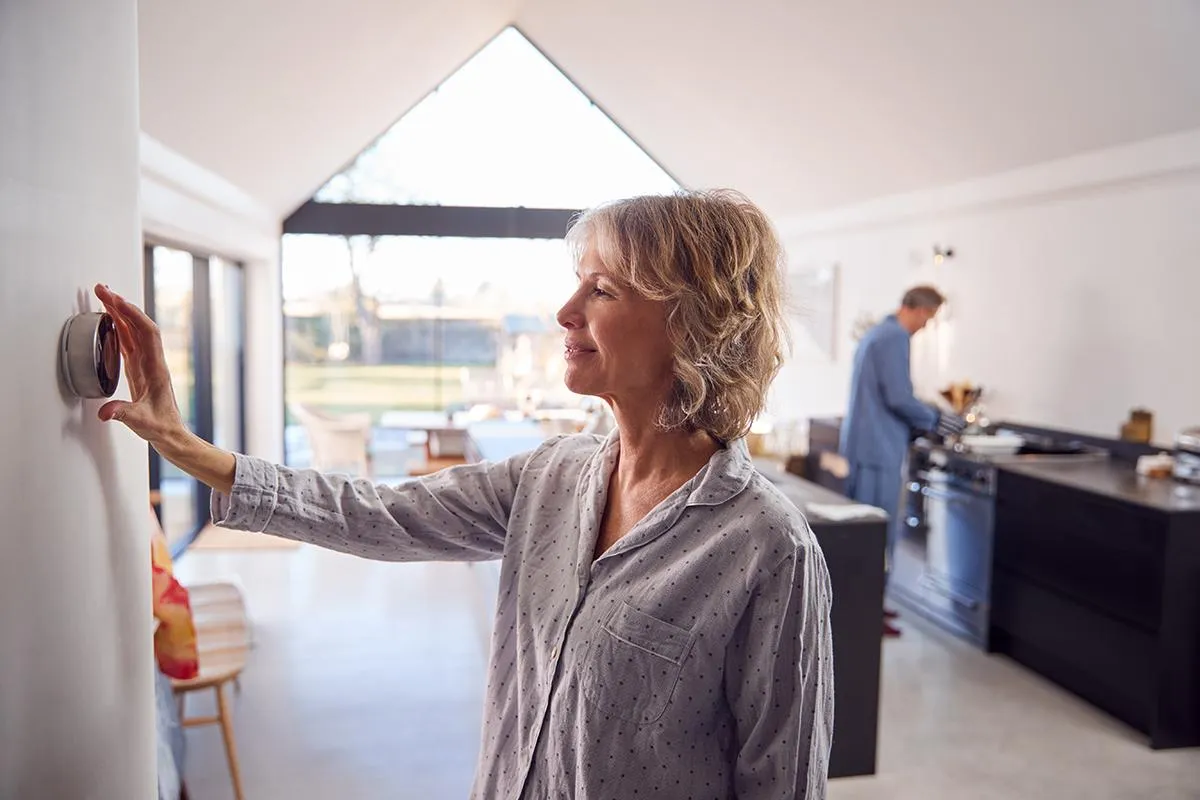
heating

Cooling
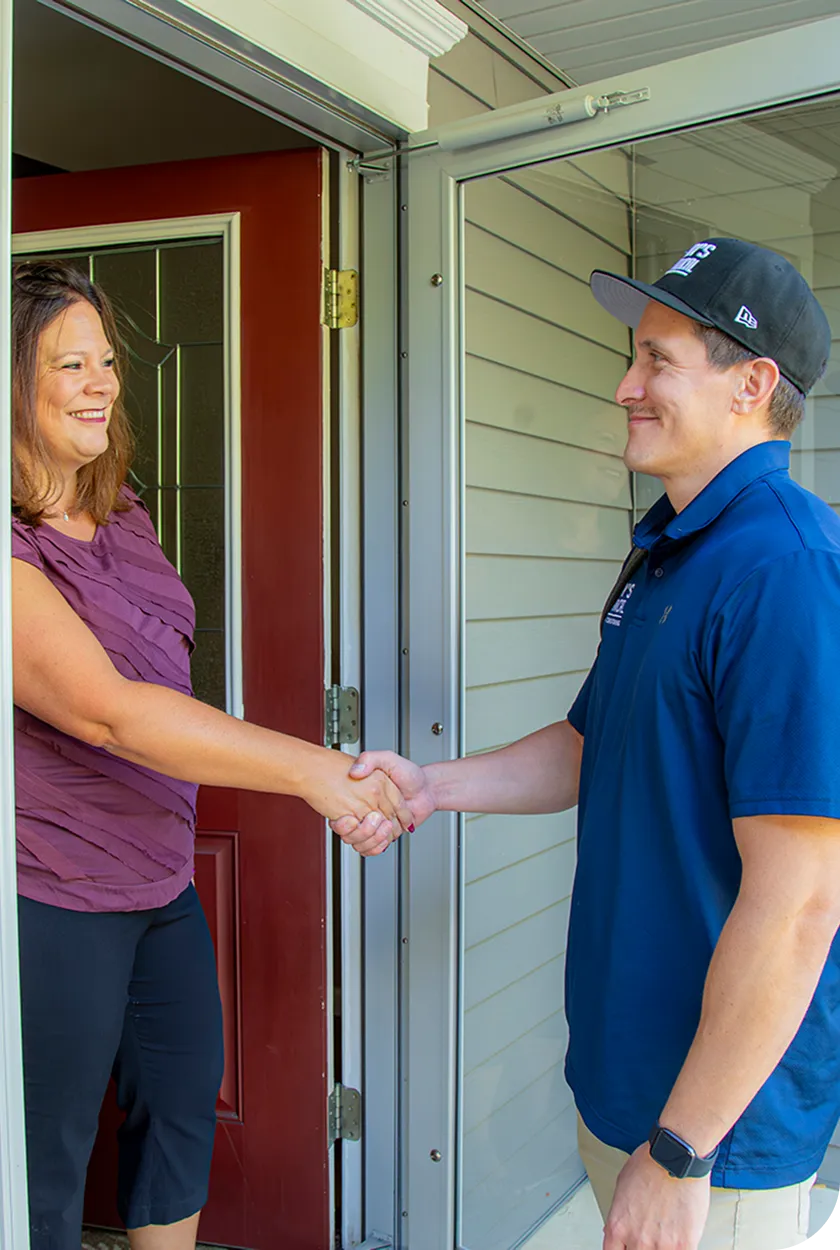
Our Exclusive AC & Heating
Preventive Maintenance Plan
Our preventative maintenance plan covers both air conditioning and heating services so your units perform at maximum efficiency. Regular maintenance means fewer repairs, better air quality, and cost savings for you. Our technicians take the time to inspect, clean, and fine-tune every part of your air conditioning unit and heating system. This not only helps maintain your comfort but also extends the life of your equipment. When temperatures drop, you’ll stay warm, and when the summer months roll around, you’ll stay cool—all without worrying about serious issues popping up unexpectedly.
Gray’s Mechanical is proud to offer a comprehensive HVAC maintenance plan. Every customer is a member of our family and, therefore, gets the Gray’s Mechanical Guarantee. We are committed to keeping your HVAC system running at peak performance year-round. Our maintenance program includes:
Two maintenances (Spring and Fall)
Discounted destination charge
Fewer repairs
Up to 15% discount on any repair
Priority customer
24 hour emergency service
Fix minor issues before they become major problems
Keep your unit running at maximum efficiency
Help prevent mid-season breakdowns
Premier HVAC Installations and Repairs in Carol Stream
Installing or repairing an HVAC system is more than just a job; it’s a commitment to your home’s comfort and your family’s well-being. At Gray's Mechanical, our installation and repair services cover everything from heat pumps to ductless systems, ensuring your space stays comfortable year-round. Our team is trained to handle furnaces, boilers, air conditioning units, and more — delivering each project with care and precision. We focus on installations that last and repairs that solve problems at their core. If your air conditioning or heating services need attention, our technicians are ready to diagnose and fix issues promptly.
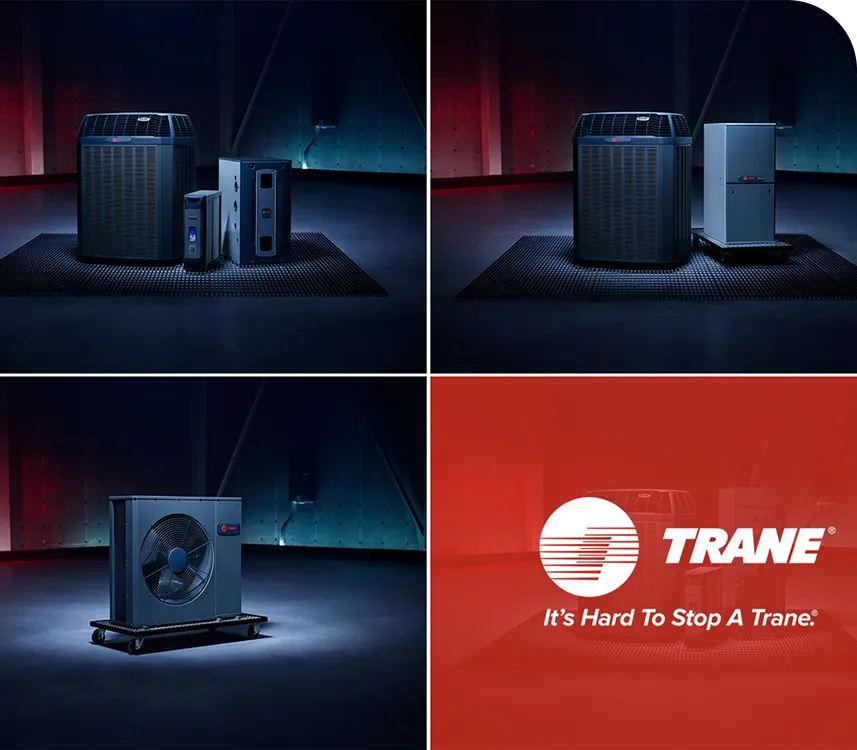
We are proud to offer:
TRANE® Products
Tough
TRANE® tests their products for 2,600 hours in bone-chilling cold and blistering heat. They push their technology so the system you get serves you for up to 12-20 years.
Efficient
Many of TRANE®'s systems are ENERGY STAR® certified. Look out for efficiency ratings on our products to see how much you may save.
Innovative
TRANE®'s HVAC systems have come far, but never settle. With 1,500 heating and cooling patents, their technology is engineered to be better than the rest.
Trusted
For 120 years, TRANE® have been the market leaders at improving HVAC systems. TRANE® grew into a household name as our customers continued to return to reliable products.
Why Choose Us?
Reliable Service: With years of experience under our belts, we’ve built a reputation for dependability. Our team is committed to showing up when we say we will and getting the job done right the first time.
Expert Technicians: Our professionals are not just skilled—they're also knowledgeable. We keep up with the latest technology to deliver top-tier service, ensuring your HVAC system operates at peak performance.
Community-Focused: We're a local business deeply rooted in the Carol Stream community. Our main goal is to offer a genuine and transparent service, treating you like part of the family.
Let's Get Started
Ready to experience Gray's Mechanical difference? Whether you're a new homeowner or simply looking to upgrade your current system, we're here to assist. Don't wait—reach out today and let us bring comfort to your home.
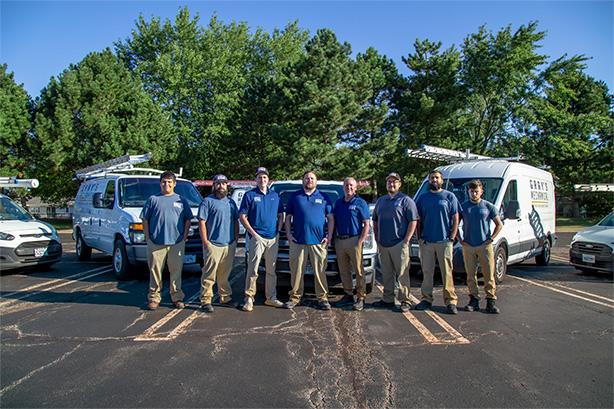
Comprehensive HVAC Services in Carol Stream
Are you looking to set up a new system, need a quick fix, or seek a maintenance plan? From air conditioning repair to boiler installations, our range of HVAC services is tailored to keep your system in top shape. We cover all aspects of heating and cooling, including regular maintenance, new system installations, and comprehensive repairs. Our cooling contractors specialize in keeping air conditioning systems functioning during the summer heat, while our heating services ensure furnaces and boilers operate smoothly when temperatures dip.
HVAC in Carol Stream
HVAC in Carol Stream is crucial for maintaining comfortable living environments throughout the year in this diverse climate. HVAC, short for Heating, Ventilation, and Air Conditioning, covers installing, maintaining, and fixing systems that control indoor temperature and air quality.
Proper HVAC services ensure that homes remain energy-efficient and air circulation meets health standards.
Installation
Setting up new HVAC systems for optimal performance.
Repairs
Fixing issues promptly to restore functionality.
Maintenance
Regular check-ups to prolong the lifespan of your equipment.
Efficient HVAC systems keep us comfortable, help lower our energy bills, and reduce our environmental footprint.
At Gray's Mechanical, all your HVAC needs are covered in Carol Stream. Our dedication to friendly service, reliable solutions, and top-notch expertise make us the go-to choice for your home comfort.
AC Installation
Looking to upgrade your cooling system? We offer premium AC installation services to keep your space cool and energy-efficient. Our skilled technicians will take the time to understand your needs, suggest the best units, and install them carefully. Let us help you enjoy a cooler, more comfortable home or office with our dependable service.
Maintenance Program
The last thing homeowners want to worry about is their heating breaking down unexpectedly. Instead of trying to keep track of everything yourself, why not let our maintenance program handle it all for you! By enrolling, your system remains efficient and significantly extends its lifespan.
Our HVAC maintenance experts perform routine check-ups, we inspect all components, preventing unexpected issues and costly repairs. Our comprehensive maintenance services offer peace of mind and a comfortable home environment year-round.
Discover the benefits and learn more about our program.
Heating Repair
Don’t get left out in the cold this winter. Our reliable heating repair services ensure your home stays warm and comfortable all season long, no matter how chilly it gets outside.
Our skilled technicians are here to help with quick and efficient repairs, using only the best parts to assure your heating system runs smoothly. We treat your home as if it were our own.
Enjoy peace of mind knowing we are just one call away, ready to keep your home comfortable during the harshest winter months.
Heat Pumps / Mini Splits
Versatile and effective, our heat pumps and mini splits cater to heating and cooling needs, ensuring your home stays comfortable year-round.
No matter if it's the blazing heat of summer or the freezing chill of winter, these systems keep you comfortable with reliable temperature control and energy efficiency. They give you peace of mind, making your home feel like home all year round.
Heating Installation
Need a new heater? Our team offers professional installation of heating systems tailored specifically to your home’s needs.
We'll assess your space, suggest the best options, and make sure the installation goes smoothly. Our goal is to give you efficient and dependable heating that you can count on for years.
Furnace – Natural Gas
Looking for efficient heating solutions? We're here to help! We specialize in repairing and installing natural gas furnaces. Our experienced technicians make sure your furnace runs smoothly, giving you reliable and cozy warmth. Stay comfortable with our dedicated and friendly service.
AC Repair
Feeling overwhelmed by the summer heat? Our expert AC repair services will ensure your home stays cool and comfortable, providing the relief you need during those scorching days.
Whether you need a small tune-up or a big repair, our friendly and experienced technicians are here to care for your air conditioning needs. Don't let the heat get you down—rely on us to keep your home cool and comfortable all summer long.
Electric Heat Pump
Go green with our energy-efficient electric heat pump installations and repairs. By opting for our services, you reduce your carbon footprint and enjoy savings on energy bills and a more relaxing home environment. It’s a smart option for eco-conscious homeowners who prioritize sustainability and efficiency.
24/7 HVAC Emergency Services
Emergencies don’t wait for convenient times, and neither do we. Gray's Mechanical offers 24/7 emergency HVAC services so you can get help whenever you need it. Whether it’s an unexpected breakdown in your air conditioner during the peak of summer or an issue with your heating system during a frigid night, our team is just a phone call away. You’ll speak to a live person and have a technician dispatched quickly to diagnose and solve the problem. We understand that sudden HVAC issues can disrupt your home or business, so we work hard to restore comfort without delay. Trust our team for quick, effective service that brings your system back to top shape so you can get back to what matters most. Based right here in Carol Stream, we're your go-to for reliable and quick HVAC solutions. Your comfort and peace of mind are what matter most to us.
Meet Our Expert Technicians
Certified and Experienced Professionals
At Gray's Mechanical, we're proud of our skilled team of certified and experienced technicians. Our experts aren't just knowledgeable but genuinely passionate about providing the best HVAC solutions. They continuously train to stay ahead of industry trends and technologies and truly care about their work.
You can rely on our team members to handle any HVAC challenge with precision and expertise, bringing you the comfort you deserve.
Friendly and Reliable Service
We believe that excellent service isn't just about technical know-how - it's also about the human touch. Our technicians are friendly and approachable, always happy to answer your questions, address your concerns, and find the best solutions for you.
We strive to build lasting relationships with our Carol Stream customers through dedication and genuine, personable service.
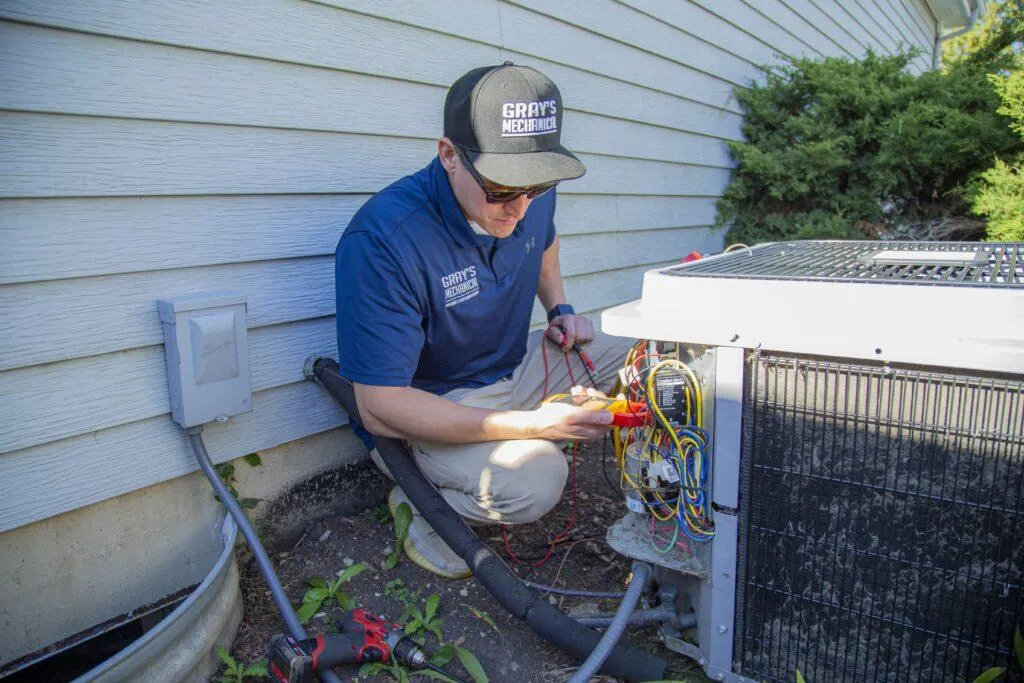
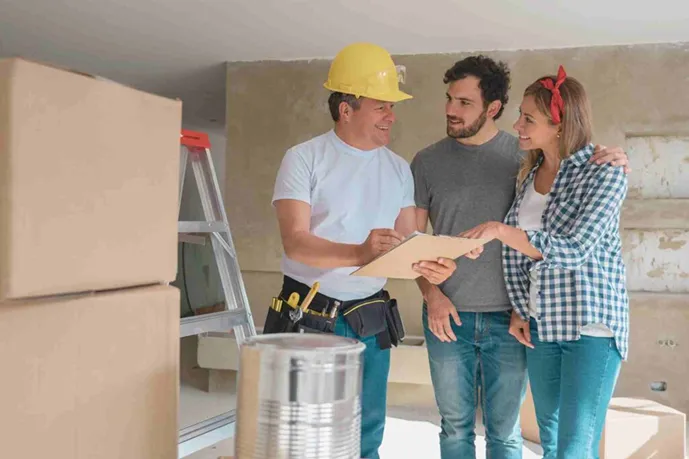
Certified and Experienced Professionals
10-Year Guarantee on Our A/C Units
At Gray’s Mechanical, we understand that sometimes things don’t go exactly as planned after a new A/C installation. That’s why we proudly offer a 10-year labor guarantee on our new A/C units. If your A/C experiences any issues within the first year after installation, just give us a call, and we'll fix it. No questions asked. We stand by our work, and your satisfaction is our ultimate goal.
And if you sign up to be a maintenance member, that 10-year warranty for new residential installations is all yours.
Our commitment is clear: Should anything go wrong with your air conditioner or furnace, Gray’s Mechanical is just a phone call away to provide a swift and professional solution.
Ready to experience exceptional HVAC service with unbeatable guarantees? Reach out to Gray’s Mechanical today, and let’s keep your home comfortable and your mind at ease. Schedule your service or learn more about our warranties. Your comfort is our business!
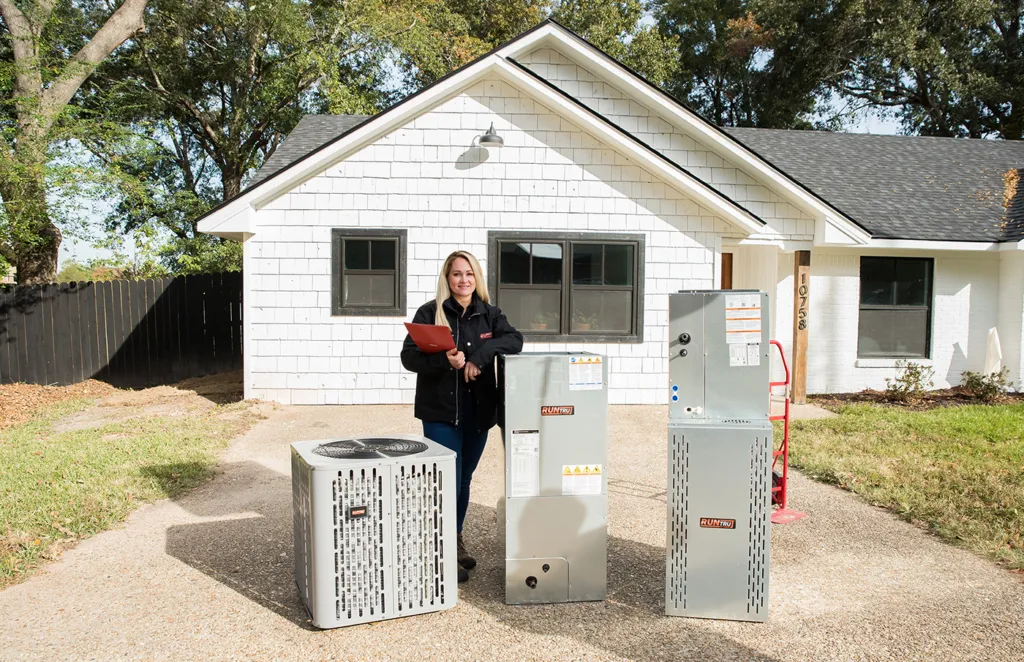
Flexible Financing Options
Buy Today, Pay Over Time
At Gray’s Mechanical, we're committed to making your home's comfort affordable and stress-free. That’s why we offer flexible financing options. Our financing plans are designed to help you get the HVAC system you need now without the financial strain.
Why wait? Enjoy flexible financing that lets you spread the cost over time. With convenient monthly payments, managing your budget has never been easier. Plus, account management is straightforward and hassle-free, ensuring you can focus on what truly matters.
We believe in giving our Carol Stream neighbours access to the finest HVAC systems without breaking the bank. By choosing our financing options, you’re not just investing in your home’s comfort. You’re investing in peace of mind.
Ready to discover more about how Gray’s Mechanical can make your next HVAC project a breeze? Connect with us today, and let us assist you in finding the ideal financing solution tailored to your needs.
See if you qualify and take the first step towards a more comfortable home.
About Gray's Mechanical
Family-Owned and Operated
Gray's Mechanical is a family-owned and operated HVAC company serving the Carol Stream area. Our story started with a simple idea: to bring comfort to our neighbors' homes while delivering exceptional service. Founded by the Gray family, we’ve grown from humble beginnings into a trusted name in HVAC, thanks to our strong family values and deep ties to the community.
We believe in treating our customers like family, so we’re always here for you, from the first consultation to the final installation. Our goal is to keep your home comfortable year-round. We want to create a space where you can relax and thrive.
Our Mission and Values
At Gray's Mechanical, our mission is simple: to provide premium HVAC services focusing on customer satisfaction. We’re passionate about what we do, which shows in the quality of our work and the care we put into every job.
Integrity is at the heart of our business. We always strive to do the right thing, even when no one is watching. Excellence drives us to enhance and deliver the best solutions for your needs continually. And our customer-centric focus ensures that your comfort and satisfaction are always our top priority.
We’re here to build a relationship based on trust and reliability. When you choose Gray's Mechanical, you're choosing a partner in comfort who’s committed to delivering professional, knowledgeable, and friendly service.

Schedule Your Next HVAC Appointment in Carol Stream & Chicagoland, IL, Today
Don’t let your HVAC system wait. Whether you need installation, repair, or regular maintenance, Gray's Mechanical will help you stay comfortable through every season. Reach out today to schedule your next appointment and experience the difference between a trusted HVAC company. We're here to handle all your HVAC needs with a focus on reliability, efficiency, and customer satisfaction. Reach out to us today and experience the Gray's difference!


Serving the Chicagoland area, Including:
Chicago, Carol Stream, Glendale Heights, Bloomingdale, Wheaton, Winfield, Glen Ellyn, St. Charles, Hanover Park, Bartlett, Geneva, Villa Park, Lombard, Warrenville, Elgin, Aurora, Batavia and many more.
24/7 Emergency Services • Call 331-218-2565
©2023 Gray's Mechanical
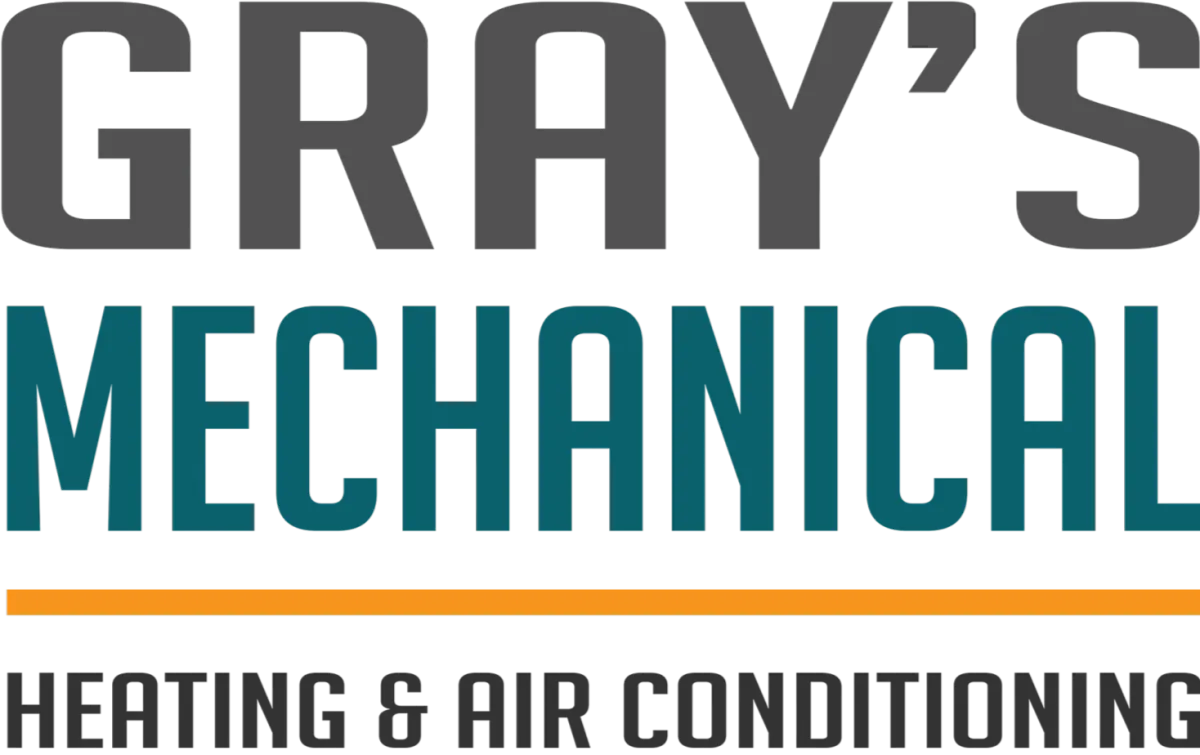
Facebook
Instagram